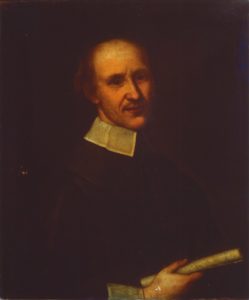
Opera Profile: Giovanni Legrenzi’s Once-Popular Baroque Work ‘Il Giustino’
By John VandevertConsidered one of his best works with a total of 70 arias in just three acts, Giovanni Legrenzi’s 16th opera “Il Giustino,” premiered on February 7th in 1683 at the Teatro San Salvador in Venice, was once one of the best pieces of operatic literature in the 17th century.
Having made its revival in 2007, the opera is now shelved, with the exceptional aria being sung here and there. Nevertheless, its legacy is deserving of a remembrance. Although Vivaldi’s 1724 version is more widely known, it was Legrenzi’s highly virtuosic writing that became the model for the Venetian composers to come.
In the early 1680s, Giovanni Legrenzi was in relatively poor health, although not yet so bad as to abandon his duties. In 1682, he was appointed the vice-maestro at Saint Mark’s Basilica in Venice, and had become incredibly well-favored for his operatic works, now numbering 15.
It was in the early 1680s when his operatic output would begin growing rapidly, from 1680 to 1683 alone, he had managed to compose eight, full-length operas. So in 1683, in the midst of his career, he began yet another opera. This time, it would be based not on mythology or cosmic themes but the life of Emperor Justin I, a peasant turned emperor and the founder of the Justianian Dynasty, and is accredited with the semi-realization of the edict dubbed “renovatio imperii” (Renewel of the Roman Empire).
The libretto, written by the Italian nobleman and amateur opera librettist Nicolò Beregan, was the same one used by Vivaldi in 1724, and had managed to become one of the most popular Venetian operas, Legrenzi’s version talked about up until the early 1720s, a feat in itself. However, it is noted by scholars that Vivaldi’s usage of the libretto was the last known opera to use it, although Legrenzi’s musical style lived on within the aesthetics of Vivaldi and his contemporaries.
It’s known that the baroque style used in this opera was copied by composers such as Alexander Scarlatti, Tomaso Albinoni, Antonio Vivaldi and George Friderich Händel, if only in the echoes of their music and generally similar plots. The opera underwent a modern revival back in 2007 by the Schewtzingen Festival under conductor Thomas Hengelbrock, although no further premieres have been staged as of now.
Categories
Opera Wiki

